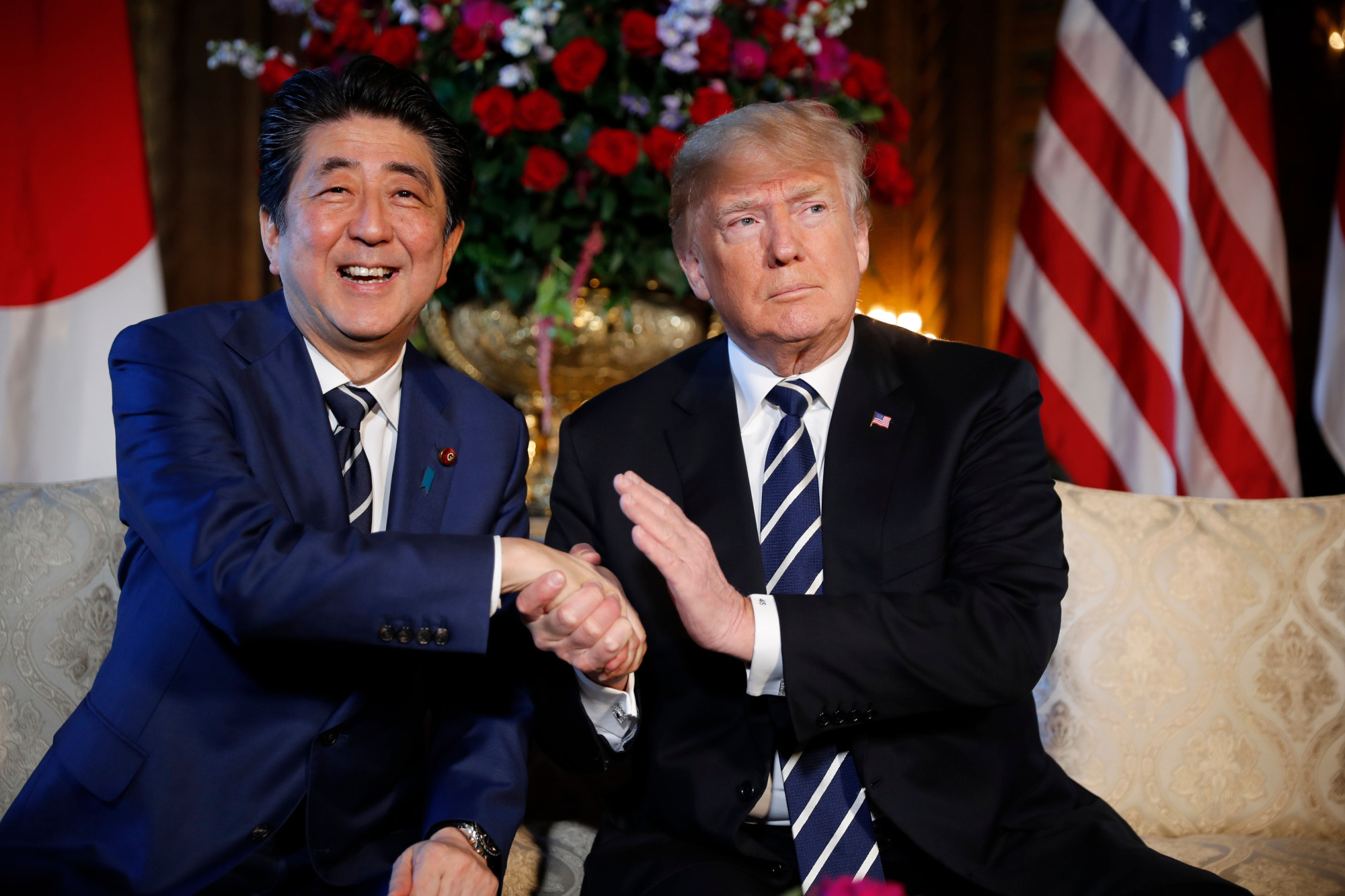Prime Minister Shinzo Abe is visiting U.S. President Donald Trump this week, their seventh meeting since Trump's 2016 election victory. Abe was the first foreign leader to meet Trump, and the two countries' military alliance has helped to sustain peace in Northeast Asia for the past 60 years. This meeting, however, is likely to be more fraught than any others given Trump's recent slights to Abe: Trump initially omitted Japan from the list of countries temporarily exempted from new trade tariffs, and didn't alert Tokyo ahead of his decision to meet with North Korean leader Kim Jong Un.
While Abe's latest visit was prompted by the possibility of Trump meeting Kim, the leaders have at least two other important issues to discuss: trade and China's growing military activity around the region. China is almost always in the room when the United States and Japan meet, and never more so than since President Xi Jinping came to power in 2013.
Abe needs Trump to counter Beijing, and as a result the Japanese leader will have to overlook much about Trump's behavior so far. It's also why this week's two-day summit is likely to end on a cordial note. Anything short of that would add to the region's volatility — and both men know that.



















With your current subscription plan you can comment on stories. However, before writing your first comment, please create a display name in the Profile section of your subscriber account page.